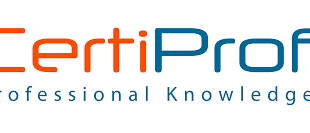MBA certifications can enhance your credentials, complementing an MBA degree or offering a specialization. Here are ten notable MBA certifications:
Corporate Finance Professional Certification :
The Corporate Finance Professional Certification is designed for individuals seeking to specialize and excel in financial roles within corporations. It covers essential topics such as financial analysis, budgeting, capital budgeting, risk management, and strategic financial planning.
Corporate finance involves managing the financial decisions of corporations to maximize shareholder value. It encompasses activities such as capital investment decisions, financing decisions (raising funds through equity or debt), and dividend policy. Corporate finance professionals analyze financial data to assess the feasibility of projects, determine the optimal capital structure to minimize costs and maximize returns, and manage risks associated with financial investments. They play a crucial role in strategic planning, mergers and acquisitions, and ensuring the financial health and sustainability of the organization. Ultimately, corporate finance aims to allocate resources efficiently and enhance the overall financial performance and value of the corporation.
Marketing Management Professional Certification
The Marketing Management Professional Certification is designed to validate expertise and proficiency in various aspects of marketing management. It typically covers strategic marketing planning, market research and analysis, consumer behavior, branding, digital marketing strategies, and marketing communications.
Marketing management involves planning, executing, and overseeing the activities that facilitate the exchange of goods or services between a company and its customers. It encompasses strategic decision-making related to product development, pricing, promotion, and distribution. Effective marketing management requires a deep understanding of consumer behavior, market trends, and competitive dynamics to create compelling value propositions and achieve business objectives. It involves market research, brand management, advertising, and sales strategies to build and maintain customer relationships, drive sales growth, and enhance brand loyalty. Ultimately, marketing management aims to align customer needs with organizational goals through coordinated efforts across various marketing channels and platforms.
Operations Management Professional Certification
Operations management involves overseeing the processes, systems, and resources that are essential for an organization to deliver its products and services efficiently and effectively. Operations management plays a critical role in achieving organizational goals by ensuring that operations run smoothly and align with strategic objectives.
Operations Management involves overseeing and optimizing processes, resources, and activities required to produce goods and services efficiently. It encompasses planning, organizing, coordinating, and controlling various operational activities. Key objectives include enhancing productivity, ensuring quality, managing resources effectively, and minimizing costs. Operations management is crucial for achieving organizational goals by aligning operations with strategic objectives and responding to market demands efficiently.
Strategic Management Professional Certification
Strategic management involves the formulation and implementation of long-term goals and initiatives taken by an organization’s top management. It encompasses analyzing the internal and external environments to identify strengths, weaknesses, opportunities, and threats.
Strategic Management involves the formulation, implementation, and evaluation of long-term goals and initiatives taken by an organization’s top management. It encompasses analyzing internal strengths and weaknesses, as well as external opportunities and threats, to develop strategies that align with the organization’s mission and vision. Key elements include setting objectives, allocating resources effectively, and continuously adapting to changing environments to sustain competitive advantage. Strategic Management aims to guide decision-making processes that lead to sustainable growth, profitability, and overall organizational success in both the short and long term.
Business Analytics Professional Certification
Business analytics involves the use of statistical analysis, data mining, predictive modeling, and quantitative techniques to interpret data and drive business planning.
Business analytics leverages statistical methods and data-driven techniques to interpret and predict business trends, customer behaviors, and operational patterns. It transforms raw data into actionable insights that guide strategic decisions, optimize processes, and drive organizational success. By analyzing historical data and identifying correlations, businesses can enhance efficiency, improve marketing strategies, and mitigate risks. Business analytics empowers organizations to adapt proactively to market changes, capitalize on opportunities, and achieve sustainable growth in competitive landscapes.
Entrepreneurship Professional Certification
Entrepreneurship is the process of starting and running a new business or enterprise, often driven by innovation and the desire to address unmet needs or solve problems.
Entrepreneurship is the act of creating, organizing, and managing a new business venture to drive innovation and growth. Entrepreneurs identify opportunities, take calculated risks, and leverage resources to develop products or services that meet market needs or solve problems. This process involves crafting a business model, securing funding, and navigating challenges to achieve success. Entrepreneurs often exhibit creativity, resilience, and strategic thinking, aiming to build scalable enterprises and generate value. By pushing boundaries and embracing change, they contribute to economic development and can transform industries with their novel ideas and approaches.
Information Technology Management Professional Certification
Information Technology Management involves overseeing and directing the use of technology resources within an organization.
Information Technology Management (ITM) is the process of overseeing and directing an organization’s technology resources to meet business objectives. It involves strategic planning, implementation, and maintenance of IT systems and infrastructure, including hardware, software, networks, and data management. ITM ensures that technology aligns with organizational goals, enhances operational efficiency, and supports innovation. Responsibilities include managing IT projects, optimizing performance, ensuring cybersecurity, and budgeting for technology investments. Effective ITM enables organizations to leverage technology for competitive advantage, streamline operations, and address emerging challenges, thereby driving overall business success.
International Business Professional Certification
International business refers to commercial transactions that occur across national borders. It encompasses a wide range of activities including importing and exporting goods and services, foreign investments, global supply chains, and international marketing.
International business involves commercial transactions conducted across national borders, including trade in goods, services, and investments. It spans activities like exporting, importing, foreign direct investment, and global supply chain management. Companies engage in international business to explore new markets, source resources, and leverage global opportunities for growth and efficiency. Success in this field demands navigating diverse cultural norms, economic systems, and regulatory frameworks. By understanding these complexities, businesses can enhance their competitive edge and achieve strategic objectives in the global marketplace.
Financial Accounting Professional Certification
The Financial Accounting Professional Certification is a credential designed for accounting professionals seeking to deepen their expertise in financial reporting and accounting standards.
Financial accounting is the process of recording, summarizing, and reporting financial transactions of an organization in accordance with established standards and principles. It involves preparing financial statements such as the balance sheet, income statement, and cash flow statement to provide a clear picture of the company’s financial health to external stakeholders like investors, creditors, and regulators. Key tasks include recording day-to-day transactions, classifying them into categories (e.g., assets, liabilities, equity, revenue, expenses), and ensuring accuracy and compliance with accounting standards. Financial accounting plays a crucial role in decision-making, financial analysis, and ensuring transparency in business operations.
Human Resource Management Professional Certification
Human Resource Management (HRM) is the strategic approach to managing an organization’s most valuable assets — its people. It involves the recruitment, selection, training, development, compensation, and retention of employees to achieve organizational goals effectively and efficiently.
Human Resource Management (HRM) involves managing an organization’s workforce to maximize productivity and achieve strategic objectives. It encompasses recruitment, training, development, compensation, and retention of employees, ensuring alignment with company goals and compliance with labor laws. HRM strives to create a supportive work environment that fosters employee satisfaction, engagement, and growth. By addressing personnel needs and challenges proactively, HRM plays a crucial role in enhancing organizational effectiveness and maintaining a motivated workforce capable of adapting to change and driving innovation.
 Priya Dogra – Certification | Jobs | Internships
Priya Dogra – Certification | Jobs | Internships


